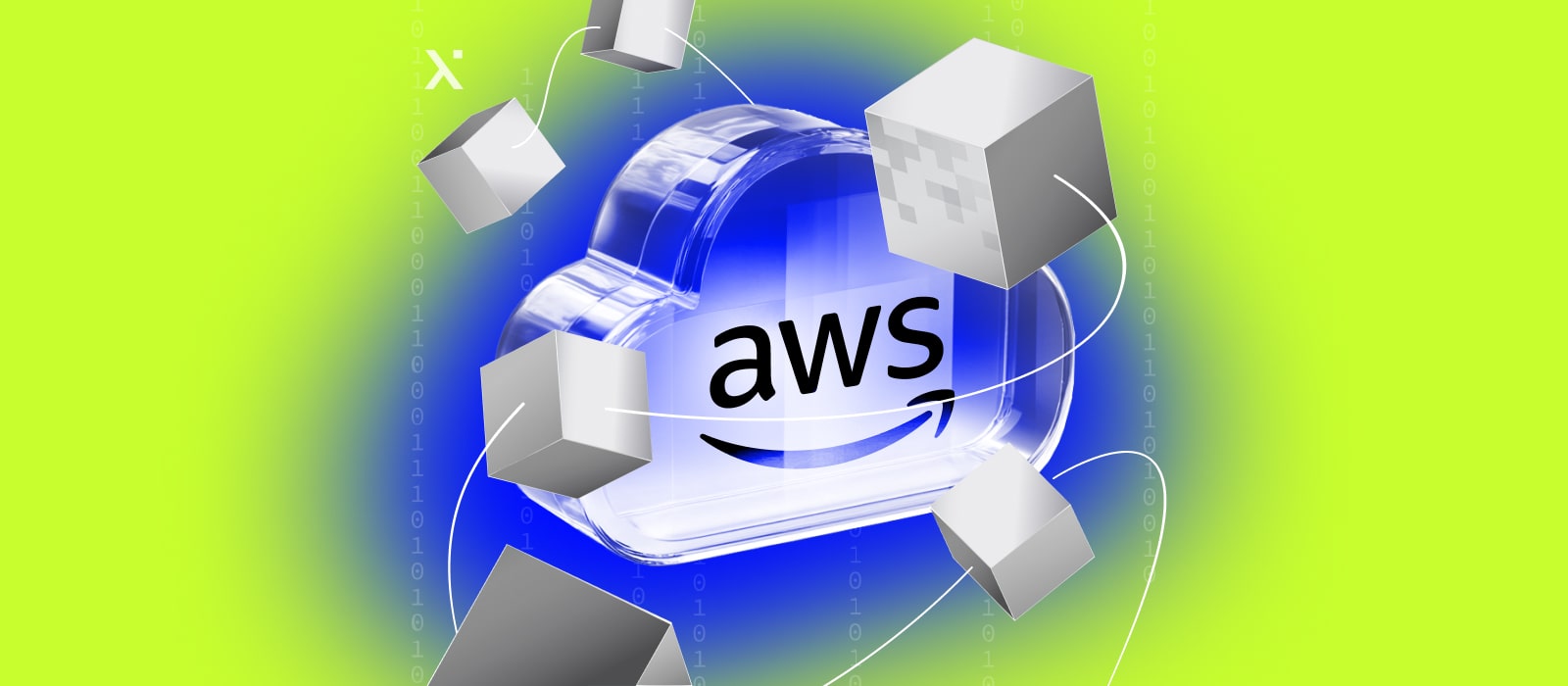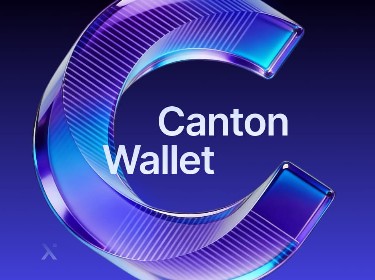Imagine a healthcare provider seamlessly tracking medical records across hundreds of facilities, without worrying about data breaches or inefficiencies. This is a reality today, thanks to AWS Blockchain, which transforms industries like healthcare, finance, and supply chain with secure, scalable blockchain solutions.
In fact, the global blockchain market was valued at USD 17.57 billion in 2023 and is projected to reach USD 825.93 billion by 2032, reflecting an annual growth rate of 52.8% from 2024 to 2032. But what’s driving this growth, and how are businesses leveraging blockchain for real-world success? As companies seek secure, scalable solutions to integrate blockchain, cloud service providers have stepped up to meet this demand.
Among the key players in the cloud space, Amazon Web Services (AWS) has emerged as a top contender, offering a comprehensive suite of blockchain services for both public and private networks. AWS provides businesses with a robust, secure environment to seamlessly integrate blockchain solutions into their operations.
In this article, we’ll explore AWS’s blockchain offerings, discuss how they solve complex business challenges, and provide a fresh perspective on the advantages of using AWS Blockchain over traditional solutions. From scalability to security and cloud integration, AWS offers businesses the flexibility they need to succeed in today’s competitive landscape.
Blockchain and AWS: from challenge to opportunity
Blockchain technology is more than just a buzzword, it’s a transformative force for businesses across sectors. AWS Blockchain services help businesses deploy blockchain solutions with unprecedented ease, offering both public and private blockchain networks that cater to specific business needs. But what is AWS Blockchain?
AWS Managed Blockchain (AMB) allows businesses to create, deploy, and scale blockchain networks with ease. By managing the underlying infrastructure, AMB simplifies the process of building secure, scalable, and decentralized applications, letting businesses focus on innovation.
Why AWS Blockchain stands out
In the competitive blockchain landscape, AWS Blockchain offers several advantages over other cloud blockchain solutions, like those from IBM and Microsoft Azure. Here’s how AWS stands apart:
Integration with AWS Services: AWS Blockchain seamlessly integrates with other AWS tools like Amazon S3, AWS Lambda, and IAM, creating streamlined workflows and reducing operational overhead.
Scalability: AWS Managed Blockchain supports auto-scaling, enabling businesses to grow their blockchain networks without worrying about infrastructure.
Security: AWS Blockchain ensures robust security with features like encryption, identity management, and access control through AWS IAM and AWS KMS.
Blockchain Analysis Explained: Use Cases & Data Insights
AWS Blockchain offerings
AWS offers a range of blockchain-related services tailored to different use cases, from fully managed blockchain networks to ledger databases with blockchain-like features.
Amazon Managed Blockchain (AMB)
Amazon Managed Blockchain (AMB) is a fully managed service that simplifies the creation, deployment, and scaling of blockchain networks. It allows businesses to build secure, scalable, and decentralized applications without needing to set up and manage the underlying infrastructure. AMB supports both Hyperledger Fabric and Ethereum, catering to enterprises that require permissioned or public blockchain solutions.
- Hyperledger Fabric support enables businesses to create private blockchain networks, ideal for use cases such as supply chain tracking, financial transactions, and inter-organizational data sharing.
- Ethereum support allows developers to deploy smart contracts, decentralized applications (dApps), and tokenized assets on a fully managed Ethereum environment.
Amazon Managed Blockchain automates the provisioning of nodes, network configuration, and security measures, reducing operational complexity. It also integrates with AWS services such as Amazon CloudWatch for monitoring, Amazon VPC for network security, and AWS Identity and Access Management (IAM) for role-based access control.
Dive deeper into Amazon Managed Blockchain, including its main features, functionality, and some of its most impressive success stories
AWS Blockchain Templates
AWS Blockchain Templates offer pre-configured environments for developers to quickly deploy blockchain frameworks on AWS infrastructure. These templates eliminate the need for extensive setup and configuration, allowing businesses to focus on building their applications rather than managing the underlying infrastructure.
Key benefits of AWS Blockchain Templates:
- Supports multiple frameworks: AWS provides templates for Hyperledger Fabric and Ethereum, enabling businesses to choose the blockchain technology that best suits their needs.
- Simplified deployment: Developers can launch a blockchain network in minutes using AWS CloudFormation templates.
- Customizable architecture: The templates allow for modifications to security, networking, and storage settings, giving businesses flexibility while maintaining AWS best practices.
- Integration with AWS services: The deployed blockchain networks can easily integrate with AWS compute, storage, and security services such as Amazon EC2, Amazon S3, and AWS Key Management Service (KMS).
These templates are particularly useful for businesses that need a quick-start blockchain solution for testing, development, and experimentation, without committing to a fully managed blockchain service like AMB.
Amazon Quantum Ledger Database (QLDB)
Amazon QLDB is a purpose-built ledger database designed for applications that require an immutable, cryptographically verifiable transaction log. Unlike traditional blockchain networks, QLDB offers a centralized ledger with blockchain-like features, making it ideal for businesses that require data integrity without decentralization.
Key features of Amazon QLDB:
- Immutable transaction history: Every change is recorded in an append-only journal that cannot be altered or deleted.
- Cryptographic verification: Uses cryptographic hashing (SHA-256) to ensure the integrity of stored data.
- High performance: Unlike decentralized blockchain networks, QLDB does not require consensus mechanisms, enabling it to process transactions faster and more efficiently.
- Fully managed: AWS handles provisioning, scaling, security, and backups, allowing businesses to focus on application development.
- Financial transaction auditing
- Supply chain tracking
- Regulatory compliance
Since QLDB is not a decentralized blockchain, it is best suited for organizations that require a single trusted authority to maintain a verifiable record of transactions.
Blockchain Database vs Traditional Database: Choosing the Best For Your Project
How to Integrate Blockchain Into Your Existing Business Infrastructure
Public and private blockchain support
![]()
AWS supports both public and private blockchain networks, allowing businesses to choose the approach that best meets their needs:
- Public blockchain networks: AWS offers tools for deploying open and decentralized blockchain frameworks, such as Ethereum, which provide transparency and immutability.
- Private blockchain networks: With services like Amazon Managed Blockchain, organizations can create permissioned blockchain networks, restricting access to authorized participants for greater control and privacy.
AWS Blockchain use cases
AWS Blockchain services empower businesses with scalable and secure blockchain solutions across multiple industries.
Fintech
In financial services, AWS supports blockchain networks that facilitate fast, low-cost, and secure cross-border transactions without intermediaries. Its immutability enhances fraud prevention by detecting and eliminating fraudulent activities in financial transactions. Additionally, blockchain enables the automation of processes such as loan approvals and insurance claims through smart contracts, reducing administrative burdens.
Supply chain
Supply chain management also benefits from AWS Blockchain by providing real-time tracking of goods from manufacturing to delivery, enhancing transparency and efficiency. Companies can use blockchain to verify product authenticity, preventing counterfeiting in industries like luxury goods, pharmaceuticals, and electronics. Furthermore, blockchain helps ensure supplier compliance with contractual and regulatory requirements.
Healthcare
In healthcare, AWS Blockchain improves the security and integrity of medical records by offering a tamper-proof storage system while maintaining privacy. The pharmaceutical industry leverages blockchain for drug traceability, ensuring that medications are tracked from production to distribution to prevent counterfeit drugs from entering the supply chain. Blockchain also plays a critical role in clinical trials, maintaining immutable records of trial data to ensure compliance and transparency.
Access management
Identity and access management solutions built on AWS Blockchain enable decentralized identity verification, allowing individuals to control their digital identities securely. Blockchain prevents identity theft by providing a tamper-proof record of credentials and authentication processes. Additionally, financial institutions and enterprises use blockchain to streamline Know Your Customer (KYC) compliance, reducing fraud and improving regulatory adherence.
Public sector
Government and public sector organizations utilize AWS Blockchain to create secure and transparent electronic voting systems, reducing the risk of fraud in elections. Governments can also implement blockchain for land and asset registries, ensuring an immutable record of ownership and transactions. Blockchain-based tax compliance and auditing solutions automate reporting processes and help prevent financial discrepancies.
Energy
The energy and sustainability sector benefits from blockchain by tracking and verifying carbon credits, ensuring transparency in emission reduction efforts. Decentralized energy trading platforms built on blockchain allow peer-to-peer transactions, particularly for renewable energy markets. Additionally, blockchain supports ethical sourcing initiatives by verifying the origin of raw materials such as cobalt, lithium, and other essential elements.
Gaming and entertainment
The gaming and entertainment industries also leverage AWS Blockchain to secure digital asset ownership and enable in-game economies. Blockchain-based NFT marketplaces allow users to buy, sell, and trade digital collectibles while ensuring authenticity and ownership verification. Play-to-earn gaming models use blockchain to reward players with cryptocurrency or NFTs, creating new monetization opportunities. In the entertainment industry, blockchain provides solutions for digital rights management, ensuring fair royalties for creators and preventing piracy. It also enhances transparency in digital advertising by eliminating fraud and ensuring fair payments to content creators and advertisers.
Top 10 Blockchain Use Cases Across Different Industries and Domains to Explore in 2025 and Beyond
Blockchain as a Service (BaaS) vs Custom Blockchain Development: Which Option Will Suit You Best?
AWS Blockchain vs. other cloud blockchain platforms
A direct comparison of AWS with other major cloud blockchain solutions (IBM Blockchain and R3 Corda on Azure).
| Feature | Amazon Managed Blockchain | IBM Blockchain Platform | R3 Corda on Azure |
| Supported blockchains | Hyperledger Fabric, Ethereum | Hyperledger Fabric | Corda |
| Deployment model | Fully managed | Self-managed in IBM Cloud | Partially managed (Azure Kubernetes) |
| Auto-scaling | Yes | Limited | Yes |
| Security features | AWS IAM, KMS | IBM Cloud Security | Azure Active Directory, Key Vault |
| Best for | Enterprises, developers | Enterprises needing deep customization | Financial institutions |
Amazon Managed Blockchain distinguishes itself from competitors through its seamless integration with AWS services, built-in auto-scaling, and native support for Ethereum. However, the IBM Blockchain Platform may be a more suitable choice for enterprises deeply embedded in the IBM Cloud ecosystem, particularly those leveraging Watson AI. Meanwhile, R3 Corda is the preferred solution for financial institutions that require advanced privacy controls and specialized transaction processing.
The optimal platform depends on your specific requirements. If easy deployment and scalability are top priorities, Amazon Managed Blockchain offers a highly efficient and managed solution.
Key steps for implementing AWS Managed Blockchain
![]()
Deploying a blockchain network with AWS Managed Blockchain requires developers with expertise in blockchain frameworks, cloud infrastructure, and security configurations. Here’s a breakdown of the implementation process:
1. Developer setup & AWS account configuration
- Sign in to the AWS Management Console and navigate to Amazon Managed Blockchain.
- Ensure the AWS account has IAM permissions to create and manage blockchain networks.
- Install the AWS CLI and relevant SDKs (Python, JavaScript, etc.) for automation and integration.
2. Choose a blockchain framework
Select the appropriate blockchain framework:
- Hyperledger Fabric for private, permissioned networks with enterprise use cases.
- Ethereum for public, decentralized applications that require smart contracts.
This choice determines the architecture and governance model of the blockchain network.
3. Configure network and node settings
Define key network parameters, such as:
- Consensus mechanisms (Ethereum PoS or Hyperledger Fabric RAFT).
- Voting policies (for permissioned networks).
- Member organizations and peer nodes (for Hyperledger Fabric).
Developers must configure network endpoints and security policies for access control.
4. Deploy and configure compute resources
- Select appropriate EC2 instance types and VPC settings to host blockchain nodes.
- Implement IAM policies to control developer access and permissions.
- Use AWS Key Management Service (KMS) for data encryption and security.
5. Develop and deploy smart contracts / chaincode
- Write Ethereum smart contracts in Solidity or Hyperledger Fabric chaincode in Go or JavaScript.
- Deploy smart contracts on Ethereum nodes or install chaincode on Hyperledger Fabric peers.
- Test contract execution and transactions using AWS SDKs and blockchain APIs.
6. Monitor and optimize performance
- Use AWS CloudWatch to track network health, node performance, and transaction activity.
- Set up automated scaling and fault tolerance mechanisms.
- Implement logging and debugging tools for troubleshooting.
7. Ongoing maintenance and security updates
- Regularly update blockchain nodes to the latest versions.
- Apply security patches and adjust access controls based on business requirements.
- Monitor for latency issues, transaction bottlenecks, or permission changes.
As AWS Managed Blockchain is not a plug-and-play solution, it requires skilled blockchain developers to configure, deploy, and maintain the network effectively. At PixelPlex, we have the expertise to develop smart contracts, AWS security policies, and cloud infrastructure to ensure uptime and scalability.
Wrapping up
As businesses explore ways to integrate blockchain into their operations, AWS provides a powerful and scalable environment for deploying both public and private blockchain networks. With solutions like Amazon Managed Blockchain, AWS Blockchain Templates, and Amazon QLDB, organizations can streamline blockchain adoption without the burden of complex infrastructure management.
However, implementing blockchain solutions effectively requires expertise in architecture design, security, and cloud integration. That’s where PixelPlex comes in. As a trusted blockchain development company, PixelPlex helps businesses build, deploy, and optimize blockchain solutions on AWS, ensuring seamless integration with existing cloud services.
With deep expertise in AWS blockchain services, PixelPlex can help your business harness the full potential of AWS Blockchain, from initial strategy to full-scale deployment. Ready to take your blockchain project to the next level? Contact us and discover how we can transform your blockchain vision into reality.
FAQ
AWS Blockchain pricing depends on the chosen service. Amazon Managed Blockchain charges for active nodes, storage, and data transfer, while QLDB follows a pay-as-you-go model based on read/write transactions and storage. Costs vary based on usage and region.
Yes, AWS Blockchain provides encryption, identity management, and access control through AWS IAM and AWS Key Management Service (KMS) to ensure data security.
Yes, Amazon Managed Blockchain is designed for scalability, allowing businesses to add new members, nodes, and scale compute/storage resources dynamically.
Yes. AWS Blockchain services integrate seamlessly with Amazon S3 (storage), AWS Lambda (serverless computing), and AWS Identity and Access Management (security and access control) to create scalable and secure applications.
AWS Blockchain Certification is a professional credential that demonstrates an individual’s expertise in deploying and managing blockchain solutions using AWS services. It validates the knowledge and skills needed to design, implement, and maintain blockchain networks in the AWS cloud.




